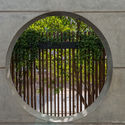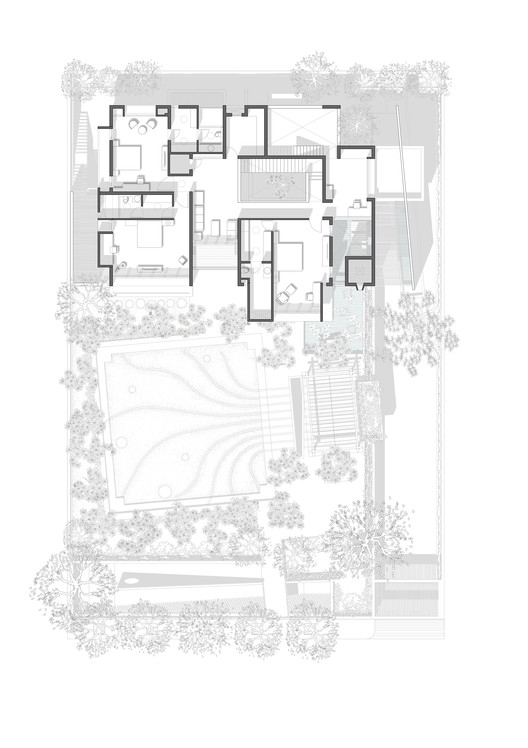
-
Architects: Studio Lagom
- Area: 11000 ft²
- Year: 2017
-
Photographs:Photographix
-
Manufacturers: Ambuja Cement, Pragati Timber Traders, Sri Ram Marble, Umiya Vijay Saw Mill
-
Landscape Architects: Studio Roots, Umesh & Prachi Wakaley, Umesh & Prachi Wakaley (Roots Designs)

Text description provided by the architects. Simple aesthetics, a minimal material palette and connections to nature are the main drivers of the design of the Skewed House, the architect’s debut through his firm Studio Lagom. The standalone 11,000-square-foot villa seeks to create an oasis of serenity in Surat’s typical urban milieu through a programme that departs from the typical planning of this typology.



















































